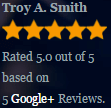If you’ve recently been charged with drug possession, then you’re probably wondering what your next step should be. Of course, contacting an experienced defense attorney is a top priority if you’re facing possession charges. In addition, there are a lot of elements to consider before you can pinpoint your most effective defense. For instance, what kind of drugs were you holding? How much? Was there an intent to sell? Do you have a prescription for these drugs? These and other questions must be answered before you can properly build a case. Here’s a list of facts and defense strategies to help you better understand how to move forward with possession charges.
1. New York state law draws a clear separation between controlled-substance offenses and marijuana offenses. Since medicinal marijuana is now legal in the state of New York, you’ll need to provide a valid medicinal marijuana card in your defense. However, tactics to obtain a conviction by the prosecution remains the same if you’re unlawfully holding either drug.
2. In possession cases, prosecutors must prove beyond a reasonable doubt that:
-the substance was indeed illegal
-you were in possession of the substance
-you fully understand that the substance is illegal and you were aware that you were possessing the substance
3. You can also be charged with constructive possession. Constructive possession is when you’re not physically possessing the drug, but you have some form of control over a person or place that is holding the drug. For instance, if your house was raided and drugs were found on the property, but you weren’t there, you can be charged with constructive possession.
4. The fines and penalties you’ll face with possession charges will depend on the amount/weight of the drugs you were holding at the time of the arrest. An A-1 felony is when you’re facing possession charges that include eight or more ounces of a controlled substance. If found guilty of your possession charges, you can face 8-20 years in prison and fines up to $100,000. Class B to Class E felonies will include sentences between 1-9 years in prison. Fines will range from $15,000 to $30,000 for class B and C possession felonies.
5. Law enforcement must follow the Fourth Amendment to the U.S. Constitution which guarantees the right to a lawful search and seizure. Basically, the drugs must be found in plain view in order to seize them and use them as evidence against you. This means that if an officer finds a controlled substance in the glove compartment of your car, instead of your dashboard, it can’t be used as evidence if you did not give the officer permission to search the car.
6. The prosecution must prove that the drugs belong to you even if they were found in your possession. If the drugs were found in the trunk of your car or in the garage at your apartment, they must be able to prove beyond a reasonable doubt that the drugs did belong to you and not a friend or roommate.
7. Certain drug possession charges should include a crime lab analysis of the drug in question. The prosecution also has to prove that the drug that was seized was indeed the drug that they claim it to be. Essentially, if it looks like cocaine, they need to prove that it’s cocaine through a lab test analysis.
8. If the seized drugs are missing, the case can be dismissed. Prosecutors need to keep track of the drugs that were taken in as evidence. If they’re misplaced or go missing, your criminal defense attorney can use this as a defense strategy to get the case dropped.
9. If you believe drugs were planted by an officer, you can request a complaint file on that officer. While this line of defense is rare and difficult to prove, you can do further research into the arresting officer if you think there was foul play or if you believe the officer planted the drugs in your possession.
10. It’s considered entrapment if you believe you were unjustly coerced into buying or selling a drug by an undercover officer or informant. If the state was the one that provided the drug in question, then you can utilize entrapment as a line of defense for possession charges.
For More Information on Possession Charges
If you’ve recently been convicted of possession charges, it’s important to speak with a criminal defense attorney as soon as possible. After you and your attorney have gathered all of the necessary details on your arrest, you can start to formulate your defense. If any of the above descriptions of a defense strategy sound like they apply to your case, it’s important to let your attorney know immediately. Your attorney can start to form a case that proves your innocence or they can negotiate a fair deal with the prosecution. Contact a criminal defense attorney today to learn more about your options.












